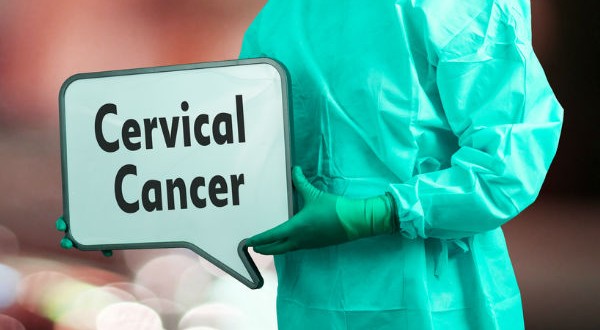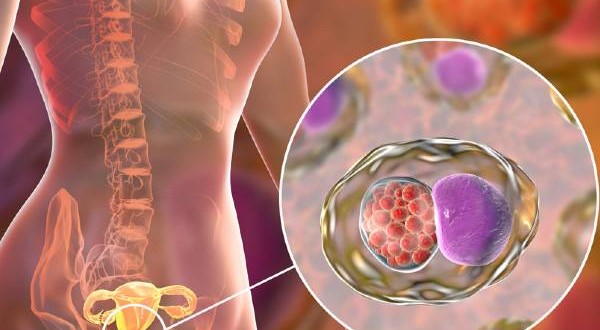Just In
- 1 hr ago

- 4 hrs ago

- 6 hrs ago

- 8 hrs ago

Don't Miss
- Finance
 Indian Railway Finance Corp IRFC: BUY Top Dividend Railway PSU Stock For 55% Gains Ahead; Target Rs 220
Indian Railway Finance Corp IRFC: BUY Top Dividend Railway PSU Stock For 55% Gains Ahead; Target Rs 220 - Movies
 Article 370 OTT Release Date, Time & Platform: Yami Gautam Starrer Can Be Watched This Week! Know When & Where
Article 370 OTT Release Date, Time & Platform: Yami Gautam Starrer Can Be Watched This Week! Know When & Where - Sports
 Rohit Sharma says MS Dhoni is 'sick and tired' but easy to convince Dinesh Karthik for T20 World Cup 2024
Rohit Sharma says MS Dhoni is 'sick and tired' but easy to convince Dinesh Karthik for T20 World Cup 2024 - Automobiles
 Google Maps To Ease EV Charger Finding With Latest Updates
Google Maps To Ease EV Charger Finding With Latest Updates - News
 Rahul Gandhi Lacks The Bravery To Run In Amethi Polls, Claims Rajnath Singh
Rahul Gandhi Lacks The Bravery To Run In Amethi Polls, Claims Rajnath Singh - Technology
 OnePlus 11R 5G Solar Red Edition Now Available With New Storage Configuration; Get It for Rs 34,999
OnePlus 11R 5G Solar Red Edition Now Available With New Storage Configuration; Get It for Rs 34,999 - Education
 IIT Madras Introduces International master's course on Water Security and Global Change
IIT Madras Introduces International master's course on Water Security and Global Change - Travel
 From Coconut Breaking on Head to Men Dressing as Women: 12 Unique Indian Rituals Explored
From Coconut Breaking on Head to Men Dressing as Women: 12 Unique Indian Rituals Explored
Cervical Cancer Awareness Month: Expert Talks About The Holistic Management Of Cervical Cancer
Cervical cancer is one major cause of cancer in middle-aged women in the premenopausal and menopausal age group.
According to WHO, 604000 women were diagnosed with the disease, and about half, i.e. 342000, died of the disease. In India, the cases of cervical cancer count approximately 6-29% of total cancer cancers diagnosed in India. There is an uncontrolled growth of abnormal cells of the cervix that is recognised by abnormal menstrual bleeding or bleeding, discomfort & growth in intimate regions, such as the vaginal region, dysuria, etc.

The disease is believed to be caused by chronic irritation of the vaginal canal due to HPV (human papillomavirus) that is spread by sexual contact. Successful parasitism depends on the virulence of the virus. It has been observed that approx. 5% of the patient getting infected with the virus develops cancer.
The other factors that favour progression to cancer depends on host factors, i.e. immunocompromised, HIV infection, nutritional deficits, smoking, vitamin deficiencies may favour manifestation of disease.
Ancient Ayurveda scholar Trisatacharya narrated that the disease occurs due to the interaction of multiple factors. They may be classified into four viz. The immediate cause, Delayed cause, Principle or chief factor and supportive factors. The factors need to be classified into these four factors.
In reference to cervical cancer, the role of HPV is most important. Still, if the host factors are not favourable to disease progression, then disease (malignant illness) would not occur. All the factors are important. While treating or arresting the disease and maintaining vaginal & uterine health, management should focus on the ideal regimen and holistic Ayurveda care. This will be discussed in detail later.
Prevention is the best possible cure for the disease; early detection can prevent a better quality of life and longevity for women. Diagnosis of the disease is a precancerous stage. The first stage of the disease can help in better and cost-effective management.
According to Acharya Sushruta, malignant tumours were caused by chronic irritation by injury (prahara), continuous irritation, diet, & regimens that lead to vitiation of Mamsa Dhatu. This leads to uncontrolled growth of tissues that lead to disease. Processed food, excessively spicy food, food that may cause chronic irritation, eating mamsa may lead to disease.
How To Identify The Problem?
Early identification is the key to the management of the disease. Screening of patients can help to identify the disease. PAP testing (Papanicolaou testing) is recommended in middle-aged women every 3 - 5 years.
When To Seek Medical Advice?
If bleeding starts after menopause, if there is excessive & abnormal vaginal bleeding, vaginal growth, etc., then the patient ought to seek medical advice.
Prevention
Cancer management is costly and has a negative impact on the general health and quality of life of an individual. In addition, it has often been said that anti-cancerous measures often come with morbidities that may have an excessive health alteration than the original disease.
It has been observed that though the disease is caused by chronic inflammation caused by the HPV virus, the infection can occur due to this primary factor, i.e. a viral infection, but the host factor and environmental, nutritional and psychological factors can delay or stop the ongoing progression of the disease and can arrest the dreaded disease of a malignant tumour.
If favourable, the supporting factors, i.e. host factor, environmental, nutritional and psychological factors, can block the disease, and if not, cancer manifests.
The prevention ought to include correcting both factors. In addition, immunisation helps develop specific immunity mediated by immunoglobulin.
The important role of immunisation is sensitising host (human) for the microbe and developing the memory of its microbe (antigen - a microbe is identified by its unique characteristic that is known as antigen if there is any change expression of the human antigen body & immune system identifies as the new microbe and may have to work more to form specific antibodies that neutralise microbial toxin).
The other means for prevention is improving non-specific immunity, mediated by three levels of defence, phagocytic activity of WBC, and non-specific immune response.

The first level defence is near the body orifices and skin intact. Well-nourished skin prevents microbial entry, the secretions near or within body orifices prevent the entry of harmful microbes and chemicals into the body.
The second level of defence is by the lymphatic that prevents the spread of the arresting microbes they get inflamed and arrest the invasion and lodgement in the body tissues and lastly killing action of WBC. This also helps in the formation of immunoglobulins.
Host factors can be improved by the use of Rasayana drugs, observing Aachara Rasayana, observing mental peace, following a healthy daily and seasonal regimen can improve host factor.
The nutritional deficit, if any, needs to be improved by nutritious and wholesome food.
It is important that wholesome food like barley, wheat, brown rice, rainwater, green gram, rock salt, ginger, sesame seed oil, cow's ghee may be taken in accordance with the individual constitution, season, and digestive strength.
Diet is not just supplementation of nutrition but that ought to be wholesome, i.e. does good after ingestion. Observing menstrual regimen and obstetrics regimen is also a part of improving host factors. This includes avoiding excessive physical & mental stress, maintenance of uterine hygiene, observing abstinence, diet regulations like avoidance of excessive sour, salty, astringent, and bulky diet, mental peace, meditation, etc. psychological stress has been identified as an important supportive factor for the genesis of cancer and positive mental wellbeing can ensure a better quality of life.
Chronic inflammation and chronic infections need better management than mere conventional antimicrobial management.
Ancient Ayurveda classic Charaka Samhita narrates those three treatment modalities managed chronic infections viz. purification, preventing exposure to causative factor (all four factors), and lastly, Prakruti Vighat correcting the factors that favour chronic inflammation (this is done by long term use of medicaments that possesses antimicrobial and immunomodulatory actions karateka, guduchi, and medicaments of bitter taste may be used).
Treatment Available In Ayurveda
Preventive cancer therapy and curative cancer offer holistic management of the disease. The treatment modalities offered in Ayurveda were medicinal management, therapeutic purification, Uttar Basti, etc.
Medicinal management is offered to prevent chronic inflammation and cure vaginitis & ulcerations. Medicine like Shigru, Varuna, Kanchanara, Ashwagandha, Sunthi were some important medicaments that can be used.
The typical cancer management protocol is treating the mass with medicine; if the malignant mass does not respond to medicinal management, it is managed with the para-surgical procedure of Agni Karma and Kshra Karma and lastly by the surgical procedure radicalisation removal of the tumour mass.
The use of alkali does Kshra Karma - it may be administered as an external application that destroys the mass internally. However, the use of alkali ought not to be used for a longer duration, and without medical advice, long term and excessive use of Alkali may be dangerous.
Therapeutic purification includes five procedures therapeutic emesis, therapeutic purgation, therapeutic enema of 2 types of un-unctuous enema & unctuous enema and nasal administration. Periodical purification, if employed, would provide good quality of life.
Uttar Basit can be used to treat chronic inflammation of the genital tract and may help arrest the progression of cancer. This medical procedure is performed by the administration of medicaments directly into the urino-genitical tract.
Statutory instruction: The article describes Ayurveda preventive management and curative management of a very common form of cancer observed in middle-aged women. One may consult a qualified Ayurveda physician or Ayurveda hospital for more information.
-
 healthExclusive: Cervical Cancer In India, Doctor Shares Preacautions And Treatments That One Needs To Be Aware Of
healthExclusive: Cervical Cancer In India, Doctor Shares Preacautions And Treatments That One Needs To Be Aware Of -
 healthTV Actor Dolly Sohi Passes Away Due To Cervical Cancer, Know The Early Signs That Are Beyond Early Detection
healthTV Actor Dolly Sohi Passes Away Due To Cervical Cancer, Know The Early Signs That Are Beyond Early Detection -
 healthExclusive: Poonam Pandey Didn't Die Of Cancer, However, It Does Spark Urgency For Cervical Cancer Awareness
healthExclusive: Poonam Pandey Didn't Die Of Cancer, However, It Does Spark Urgency For Cervical Cancer Awareness -
 insyncPoonam Pandey 'Dead From Cervical Cancer' Stunt: Life And Controversies She Was Involved In
insyncPoonam Pandey 'Dead From Cervical Cancer' Stunt: Life And Controversies She Was Involved In -
 healthErotica Star Poonam Pandey 'Dead From Cervical Cancer' Stunt: Causes, Symptoms, Treatment Of Cervical Cancer
healthErotica Star Poonam Pandey 'Dead From Cervical Cancer' Stunt: Causes, Symptoms, Treatment Of Cervical Cancer -
 disorders cureCervical Cancer: Serum Institute Of India Launches First HPV Vaccine For Cervical Cancer
disorders cureCervical Cancer: Serum Institute Of India Launches First HPV Vaccine For Cervical Cancer -
 wellnessCervical Cancer Vaccine: All You Need To Know About India's Self-Developed HPV Vaccine
wellnessCervical Cancer Vaccine: All You Need To Know About India's Self-Developed HPV Vaccine -
 wellnessNTAGI Recommends Vaccination Against Cervical Cancer And Typhoid: Sources
wellnessNTAGI Recommends Vaccination Against Cervical Cancer And Typhoid: Sources -
 wellnessDCGI Approves India's First qHPV Vaccine Against Cervical Cancer
wellnessDCGI Approves India's First qHPV Vaccine Against Cervical Cancer -
 disorders cure7 Types Of Cancer That Affect Women
disorders cure7 Types Of Cancer That Affect Women -
 healthWorld Cancer Day 2022: Decline In Cancer Screening Due To COVID-19 Fear
healthWorld Cancer Day 2022: Decline In Cancer Screening Due To COVID-19 Fear -
 wellnessPoor Intimate Hygiene Linked To Being One Of The Biggest Causes Of Cervical Cancer
wellnessPoor Intimate Hygiene Linked To Being One Of The Biggest Causes Of Cervical Cancer


 Click it and Unblock the Notifications
Click it and Unblock the Notifications



